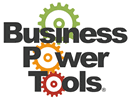Whether you are an entrepreneur launching your first startup or an experienced executive at the helm of a fast growth enterprise, you most likely seek out advice daily on a wide range of topics. None of us is an island. We all need to turn to others for help, for advice, for expertise we don’t have, etc. In most cases, we make better decisions when we do not make them alone.
 But from whom do you get your advice? Is your “advice network” large or small? Is it diverse or homogeneous? Is it formal or informal? Whatever its size, shape and depth, I recommend that you careful qualify each source of advice in your network prior to putting their information and insights into practice.
But from whom do you get your advice? Is your “advice network” large or small? Is it diverse or homogeneous? Is it formal or informal? Whatever its size, shape and depth, I recommend that you careful qualify each source of advice in your network prior to putting their information and insights into practice.
I learned years ago to discount advice from people who haven’t been there before or who fail to practice what they preach. Why would you accept advice on software development, for example, from someone who has spent a lifetime in finance? Would you make a decision related to your manufacturing process from an individual who spent decades selling services? Or, would you take advice on how to be a more effective CEO from someone who has never run a company before?
There’s also a real problem if someone doesn’t use their own stuff or follow their own advice – especially when they’re selling it to you! For instance, you wouldn’t hire a fitness trainer who is more out of shape than you are, would you? We have all heard the story about the cobbler whose own children had no shoes. Why would a man who makes shoes not provide them to his own family? We will never know, but to me this does not sound like the kind of person from whom I want to buy a product or accept advice!
For what it’s worth, I turn the solutions I develop and use to solve my own business challenges into tools that benefit all entrepreneurs. I take great pride in actually practicing what I preach.
It’s critically important to get advice from the right people. Remember to weigh the quality of the advice according to its source. Ideally, ask someone in a position of leadership – an active expert in that area. Also, ask more than one expert (a second opinion). Accept advice from less experienced or knowledgeable sources, but be sure to filter it through your own experience and the knowledge you gained from true experts.
In the past, when I had a question, I would seek advice from everyone, regardless of their qualifications on the subject. For example, I would pose a technical marketing question to a large number of people. I would weigh their opinions equally no matter what they knew or how qualified they were. This approach often failed as I did not recognize the importance of prioritizing the advice of experts over that of non-experts. If advice from all sources is weighed exactly the same it is more likely than not that the subsequent decision or action you take will result in a less than best case outcome.
Advice is a great thing. But, the right advice is golden!





